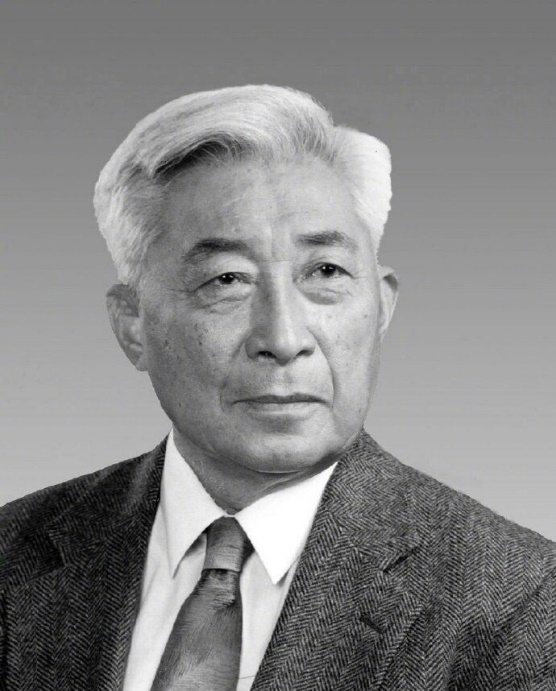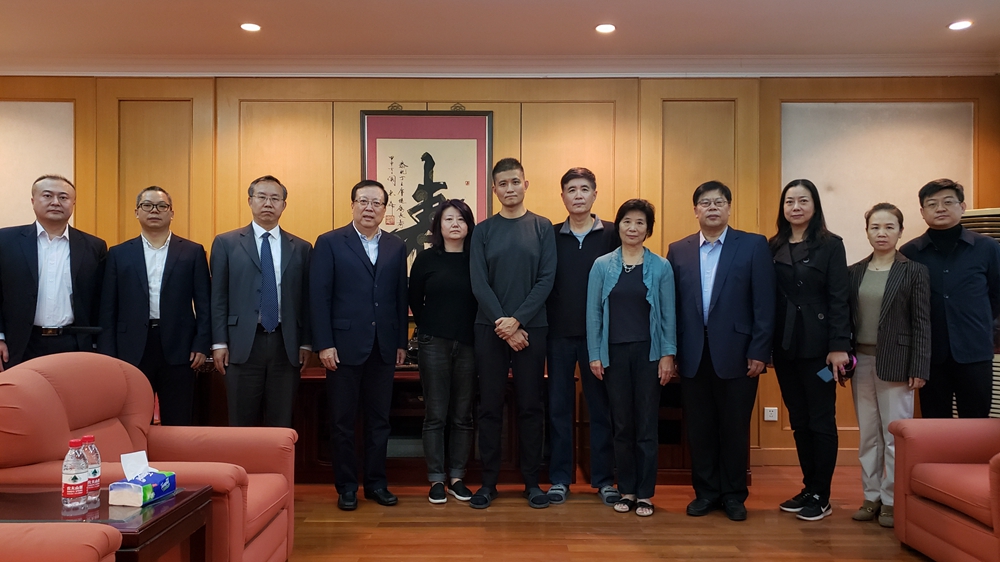Ding Shisun, former president of Peking University, passed away on October 12 at the age of 93. Ding assumed his presidency between 1984 and 1989 as the 26th President of Peking University. Ding also served as Chairman of Western Returned Scholars Association and Director of Department of Mathematics previously. When Peking University celebrated its centenary in 1998, Ding was hailed by Professor Cai Yuanpei as one of Presidents who must be remembered.
 Ding Shisun
Ding Shisun
 PKU leaders and Ding's family
PKU leaders and Ding's family
The following is an article from Academician Tian Gang, “Ding Shisun in my heart: A wise man with a benevolent mind and a dignitary of Peking University”, in memoriam esteemed and beloved Ding Shisun.
Ding Shisun was a leading figure with a historic impact on Peking University. He was also China’s contemporary educationalist, making extraordinary achievements in the field of education. Ding devoted himself with painstaking efforts, witnessing the wax and wane of his whole life. Whether in adversity or comfort, Ding maintained a spirit of integrity, acting as a teacher and paragon for later generations.
In the 1980s, I was studying at Peking University when Ding took the responsibility for the management of the Department of Mathematics. I was once honored to hear his presentation. Later in 1992, the postgraduate summer school organized by Ministry of Education was held in Sichuan University, in which Ding lectured on the theory of algebraic numbers. The theory of algebraic numbers had been an internationally popular topic for a long time yet a weak link in China. Ding was greatly distressed at this situation. Since the end of the 1970s, Ding started to study abroad, organize seminars and summer schools, and invited the international experts in the theory of algebraic numbers to visit China to give lectures, sparing no efforts to advance the development of the theory of algebraic numbers in China. In this summer school, I had communicated with the international experts invited by Ding several times. These experiences again helped encourage myself in my way of imparting knowledge and educating people. Nowadays, there are qualified successors in the field of the theory of algebraic numbers in China, in virtue of Ding’s distinct services and contributions.
Ding undertook the duty for the management of Peking University and its Department of Mathematics during the critical era of Reform and Opening-up when he encountered complex situations and pressure from all aspects. With a noble character, a broad mind, as well as brilliant wisdom, Ding solved the problems left by the times and led the whole Peking University out of the shadows of history, returning to the academic-centered position. His educational ideas embodied the spirit and style of Peking University, which is to respect people, to respect their growth and free development. Over the past 100 years, this kind of spirit has been already integrated in the Chinese culture, propelling the country and society to move forward.
Ding is the pride of those who work in the field of mathematics. He is also the role model of people who work in the scientific and educational fields. We Chinese stress “a wise man with a benevolent mind”, maintaining that a leaned man owns a benevolent mind. In essence, this requires the unity of learning and life. His pursuit of truth and that of virtue complement each other, making Ding a perfect example of “a wise man with a benevolent mind”.
In October 2013, a ceremony at Peking University was held to celebrate the 100th anniversary of the establishment of mathematics discipline, in which Ding paid a special visit to the scene and had friendly conversations with teachers and students. In recent years, I, along with the leading members and teacher representatives of the School of Mathematical Sciences, have called on Ding at his home several times, and weak though he turned to be, he still showed deep concern for the development of the mathematics disciplines. When we informed him that talented people came forth recently and that we accomplished a series of conspicuous new results, Ding, much pleased, nodded and smiled.
Written by: Zhou Meng, Huang Weijian
Edited by: Ma Yaoli, Zhang Jiang
Source: PKU News (Chinese)

